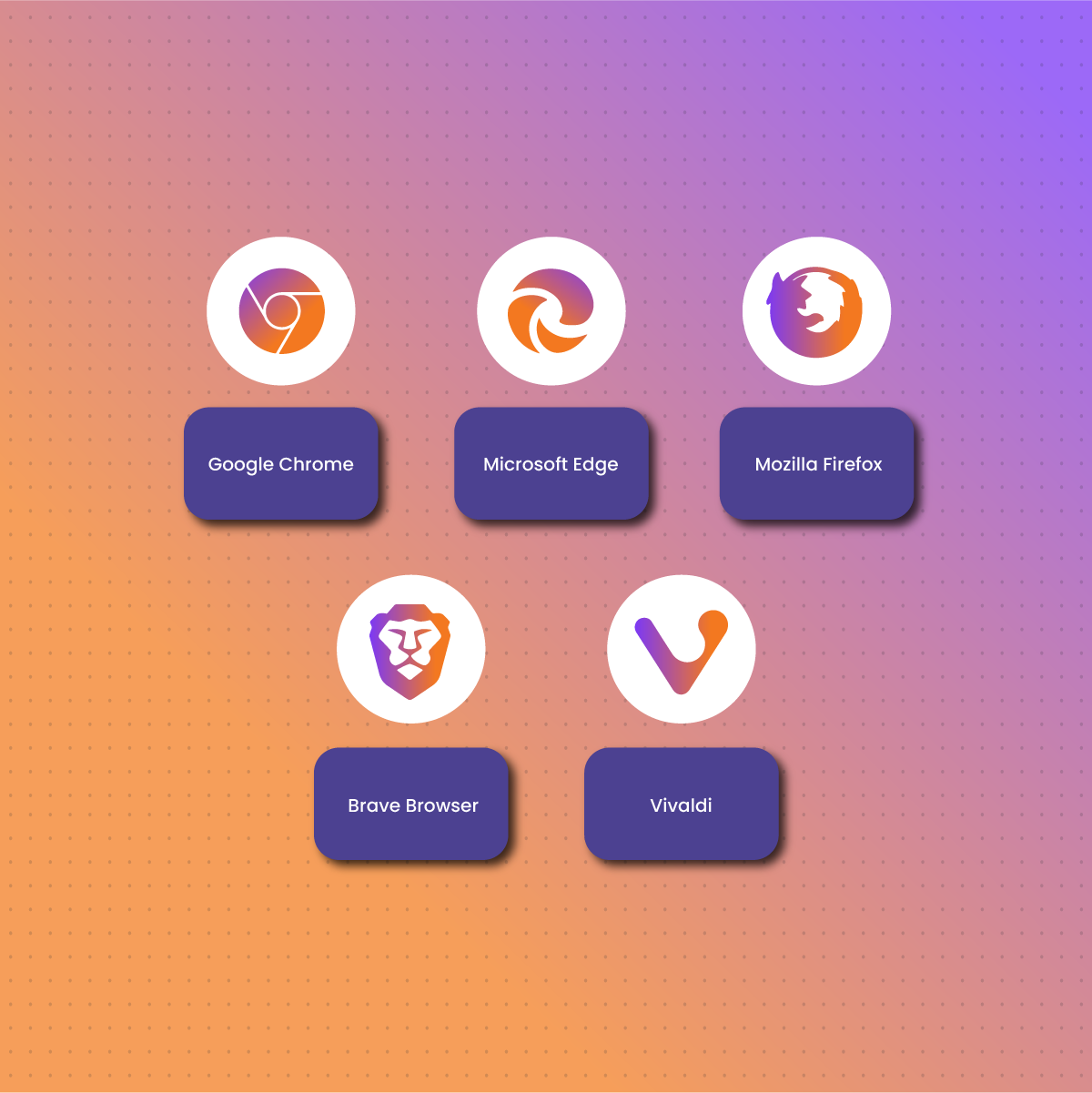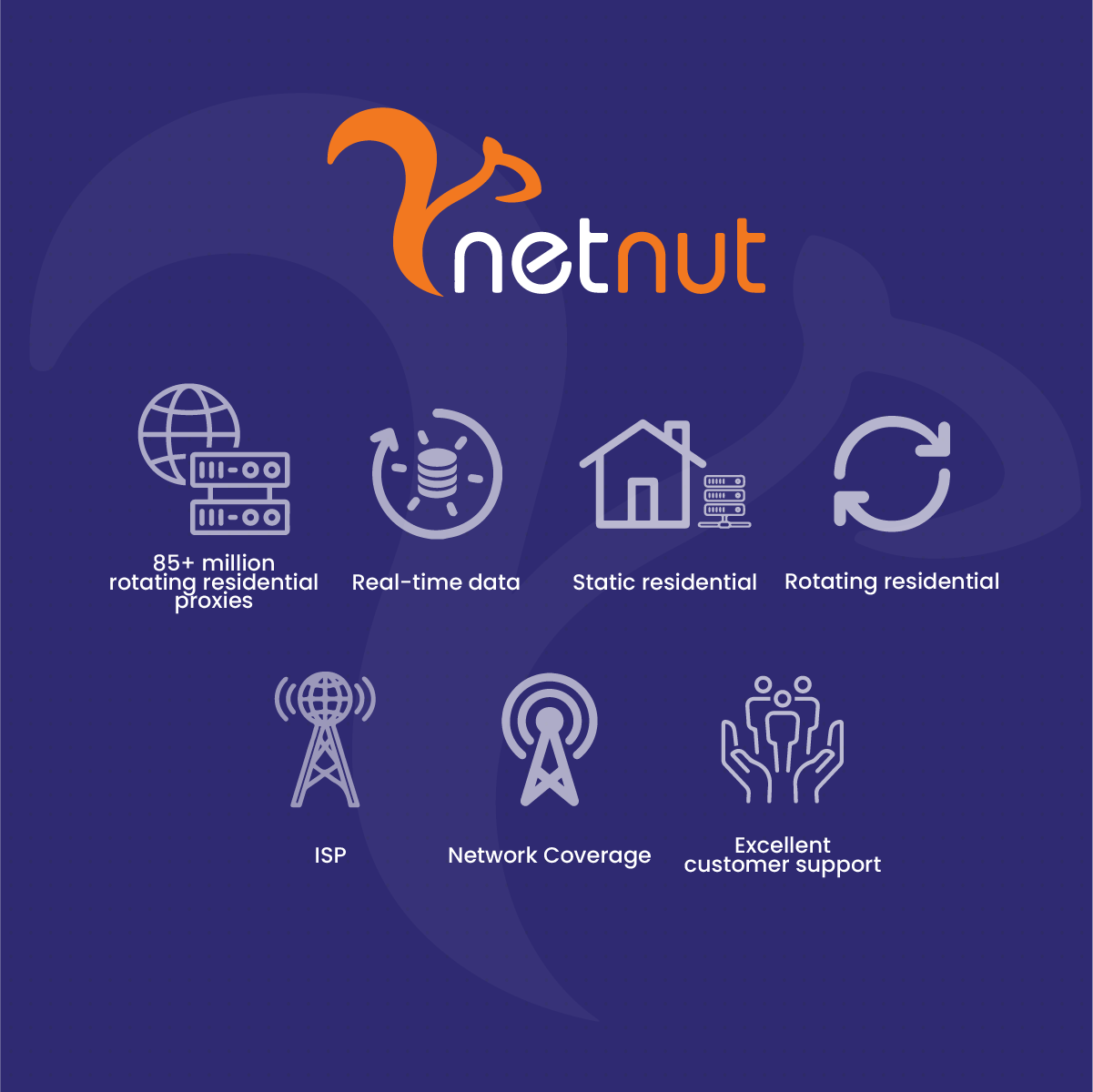Introduction To Proxy Web Browsers
Due to the increasing concern for security, privacy, and anonymity, there has been a significant rise in the popularity of proxies. When you use a proxy, the target website will see the proxy IP instead of your actual IP address. While this may sound simple, it can be applied in various cases for optimized performance and user experience.
Therefore, this article will consider some of the best web browsers to use with proxies. Let us dive in!
Best Browsers to Use With Proxies

Google Chrome
Chrome is one of the most popular and reliable browsers. One reason why Google Chrome is widely used is because of its extensive features, including access to extensions that can facilitate personal and professional activities. Apps like Gmail, Google Docs, Google Drive, Google Maps, and others make Google Chrome a one-in-all solution for many users.
However, one significant drawback with Google Chrome is that it does not have built-in support for proxies. Going through the “Settings” on your device only provides access to configuring a proxy for your operating system. As a result, you need to learn how to set up a proxy for the specific operating system that covers the browsers, apps, and other services.
The good news is that since Chrome has several useful extensions, there are some that can handle this challenge. Using proxy managers allows you to configure proxies in Chrome for different protocols and use a proxy for all the tabs. In addition, these proxy managers, depending on the provider, allow for the creation of multiple profiles and alternating between them with a click.
Microsoft Edge
Windows users are very familiar with Microsoft Edge as it often comes preinstalled on Windows computers. Although some would argue that Microsoft Edge is the most optimized browser for Windows, many other users are often reluctant to use it. This could be attributed to poor experience during the days when Internet Explorer was the available option. However, Microsoft Edge was designed to tackle all the challenges presented by the former by providing outstanding features and performance.
Microsoft Edge offers excellent protection against malware attacks. Features like Password Monitor, SmartScreen, and InPrivate search are useful in protecting user privacy and ensuring anonymity while browsing the internet. Although there are no specific settings for configuring proxy on Edge, it supports Chrome Extensions. As a result, you can easily set up your proxies on Microsoft Edge by leveraging Google Chrome extensions for optimized privacy.
Mozilla Firefox
At some point, Firefox was one of the most used browsers, especially on smartphones. This browser stands out for its speed and advanced safety features like Error Console and DOM inspector.
Mozilla Firefox uses the same proxy configuration as your operating system. Alternatively, you can set up Firefox proxies separately, as it supports HTTP, HTTPS, SOCKS4, and SOCKS5 protocols. In addition, you can indicate a list of addresses you want to visit without the interference of a proxy server. Check out this integration that discusses how to configure NetNut proxies on Firefox.
Brave Browser
Brave is another browser that focuses on privacy, and this has led to increasing adoption since internet users have become more aware of cyber threats. It works by blocking all ads which can be used to identify and track users. Subsequently, it does not store user data on its server to avoid any incidence of data theft. The ad and tracker blocking policies ensure that the browser loads faster than some of its competition.
Since Brave is built on Chromium, there are no specific proxy settings for the browser. However, you can leverage Chrome extensions to set up a proxy on Brave.
Vivaldi
Vivaldi is another browser that is built on Chromium. However, it has some features that set it apart from Chrome, especially regarding privacy. One of these distinctions is that Vivaldi’s sync function does not rely on Google servers. Instead, the browser guarantees the data is encrypted “end-to-end”. In addition, your sensitive data, including downloads, browser history, and others, are stored locally. As a result, this optimizes anonymity and security, as your data is not even available to Vivaldi’s developers.
Similar to Chrome, it does not have a specific option for configuring proxies. Therefore, you need to set up proxies based on the settings of the operating system. Alternatively, you can leverage some suitable Chrome extensions to effectively manage and configure proxies on Vivaldi with ease.
Choosing the Best Proxy Server – NetNut

NetNut offers various proxy types depending on your use case. For example, if you are engaging in automated activities like web scraping, you can leverage the rotating residential proxies. It automatically rotates your IP address to ensure you can avoid anti-bot measures for efficient data collection.
NetNut proxies ensure you bypass CAPTCHAs and other challenges that may interfere with your browsing experience. In addition, our proxies come with a fast cache storage system, which ensures your device does not store unnecessary data.
Furthermore, NetNut offers reliable Mobile IPs that provide high-level anonymity and privacy. NetNut supports 5G/4G/3G/LTE connections for unmatched speed. In addition, you can leverage our highly competitive and transparent payment plan. Our customer support is available 24/7 to offer any assistance you may require.
Why Some Browsers Are Better Than Others For Using Proxies
Not all web browsers are equally effective when it comes to configuring and using proxies. Some browsers are built with enhanced proxy support, offering greater flexibility and features, while others may lack the necessary tools or require complex configurations. Here are some reasons why certain browsers outperform others when used with proxies:
Ease of Proxy Configuration
The best browsers for proxy usage offer straightforward configuration processes, enabling users to set up proxies without needing extensive technical knowledge. For instance, browsers like Google Chrome and Mozilla Firefox provide simple, user-friendly interfaces to input proxy details directly or via system settings. This ease of use makes these browsers ideal for individuals who need quick and reliable access through a proxy server.
Extension and Add-On Support
Browsers with a rich ecosystem of extensions and add-ons excel in proxy usage. Extensions like FoxyProxy for Firefox or Proxy SwitchyOmega for Chrome allow users to manage multiple proxy profiles, automate switching, and fine-tune settings without leaving the browser. These tools provide enhanced control over proxy configurations, which is particularly useful for power users and businesses.
Compatibility with Advanced Proxy Features
Some browsers are optimized to work seamlessly with advanced proxy features like SOCKS5 or HTTPS proxies. This compatibility ensures secure, high-speed browsing while leveraging the benefits of proxies, such as data encryption and IP masking. Browsers like Brave and Opera often come with built-in VPN or proxy functionalities, making them highly versatile for users who need enhanced privacy and security.
Performance and Speed
Browsers that are lightweight and optimized for fast performance tend to pair better with proxies, as they minimize latency and ensure smooth navigation. For example, browsers like Microsoft Edge and Brave are known for their efficient performance, even when routed through a proxy server.
Customizable Privacy Settings
Proxies are often used to enhance privacy, and browsers with robust privacy options complement this goal. Browsers like Firefox and Brave provide customizable privacy settings, such as blocking trackers and disabling WebRTC leaks, which help maintain anonymity while using a proxy.
Final Thoughts on Proxy Web Browsers
This article has examined some of the top browsers that can be used with Proxies. The primary purpose of a proxy is to enhance security and anonymity. While Chrome may be one of the most popular options, many other browsers are developed from Chromium.
However, using proxies provides an additional layer of security for your online activities. Google Chrome, Brave, Firefox, Vivaldi, and Edge are some of the browsers you can consider. However, you need to choose a premium proxy provider to complement the security features of the browser. Also, be sure to check out a recent article on top 10 unblock browsers.
Choose a proxy provider like NetNut that prioritizes your needs. Do you need help choosing the best proxy type for your needs?
Kindly contact an expert to guide you through the process of obtaining high-quality NetNut proxies.
Frequently Asked Questions
What is a proxy?
A proxy serves as an intermediary between your device and the internet. In other words, it acts as a middleman that sends a request on your behalf, receives the response from the server, and transfers it back to you. For example, if you want to visit Pubmed, a popular platform that researchers can leverage for their work. Using a proxy means that you have been assigned a new IP address. Subsequently, when you visit Pubmed, it can only see the proxy IP and not your actual IP as assigned by the Internet Service Provider.
How can I set up proxies on Chrome?
macOS users can follow the steps provided to configure proxies on their operating system:
- From the Apple menu, open System Preferences
- Select Network
- Choose the network service you use and click on Advanced
- Navigate to the Proxies tab, where you can supply the proxy details, including IP address, port, username, and password.
The process of proxy configuration on Windows is quite similar:
- Go to Chrome Settings
- Navigate to System; click on it to view more options as it expands.
- Find the proxy settings tab.
Now, you can supply the crucial proxy details.
What are some factors to consider when choosing a proxy server browser?
The first factor to consider when choosing a proxy browser is security and anonymity. Therefore, you need to ensure that the browser provides excellent features that include encryption. In addition, it does not locally store your data to ensure optimal data privacy and security.
Secondly, consider the ease of use. The browser should have an intuitive and user-friendly interface. Subsequently, individuals with little or no technical knowledge can use the browser with little to no technical expertise.
Performance and compatibility are other factors that influence the choice of a proxy server browser. However, you should not sacrifice performance for security, so it is best to look for an option that caters to both.
Customer support and community reviews also determine the choice of a proxy server browser. Prompt responses from customer support can significantly optimize the user experience. In addition, paying attention to community reviews is necessary to ascertain the reliability and performance of the browser.






